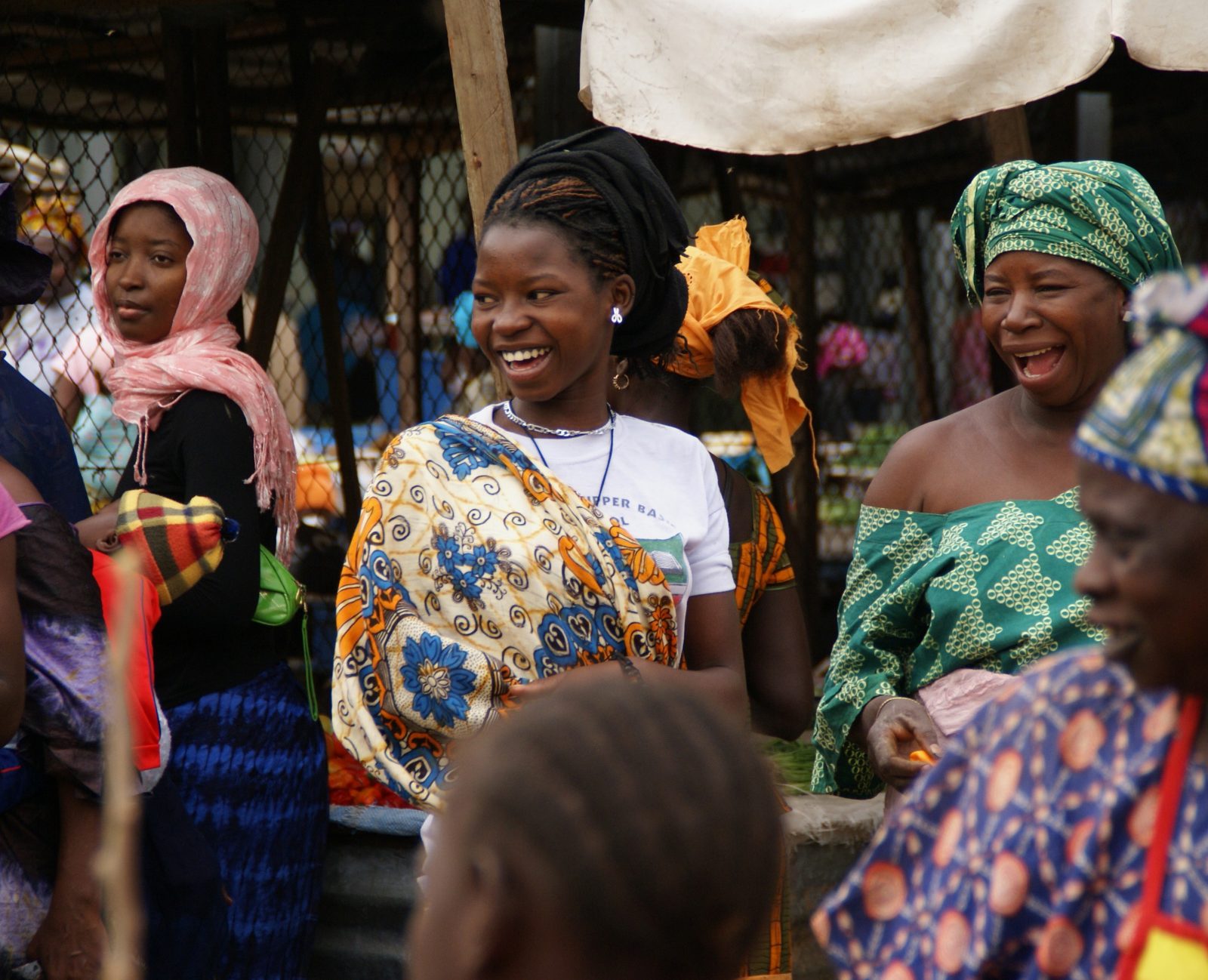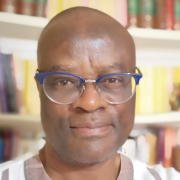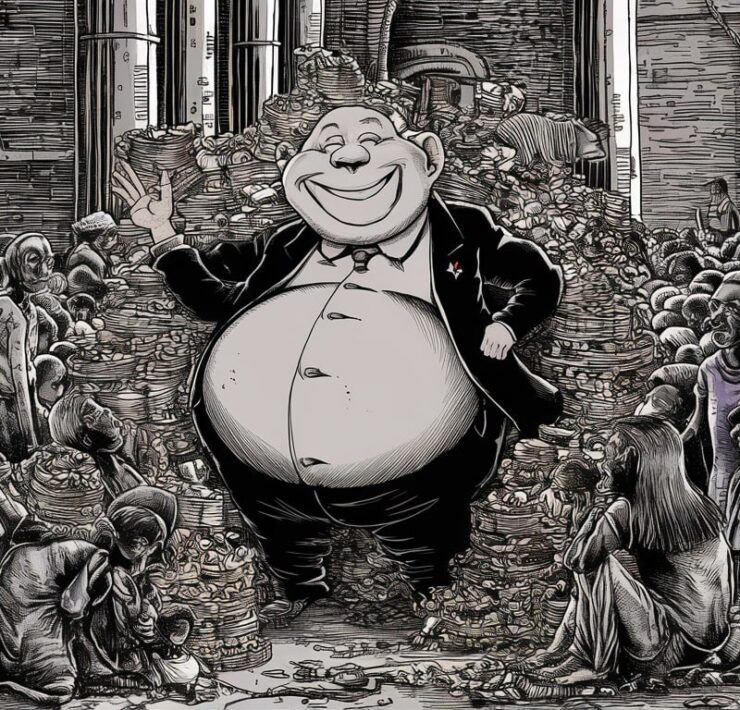
Dr. Bhengu is an Independent Researcher on Afrikan philosophy, Afrikology…
Read Next
When the United Nations Statistical Commission recently rebased its statistical calculation of the Nigerian economy and discovered that what they thought was a ‘$270bn economy is actually worth $510bn’, and then recommended that the Nigerian economy was actually more than the South African economy. Those on the economic peripheries of the two African countries neither mourn nor celebrate the announcement.
The change is noteworthy. The international community will pay greater attention to Nigeria now that its economy casts a larger shadow than South Africa’s and display new confidence that will potentially be rewarded with lucrative gains, especially at a time when value-laden sectors such as power are opening up in unprecedented ways.
Business, in Nigeria, will also boom for hotel owners, travel agents, airlines, and events planners as the number of Nigeria-focused trips and investment conferences swell. Scammers might even be expected to cash in as well.
The one class of people who have nothing to gain will be ordinary Nigerians: the market woman in Ibadan, the itinerant shoe cleaner in Lagos, the motorcycle taxi rider in Makurdi, the cattle merchant in Potiskum, the shoe maker in Aba, the newspaper vendor in Abuja; etc., all condemned by their country to extreme poverty.
Clearly, we are talking here about the two (2) economies of the two African countries. The United Nations Statistical Commission was dealing with the ‘First (1st) Economy’ of Nigeria, not the ‘Second (2nd) Economy’.
This is the challenge facing the African continent – of integrating the 2nd economy into the 1st economy, and then redevelop a really African-oriented and rooted African economy, where every body, black and white, brown and green, rural-based population and urban-based population will be integrated into one common mainstream economy on an equal footing.
South Africa, according to Thabo Mbeki (our former State President), has two economies: the “1st economy” and the “2nd economy”. In actual fact, the 1st economy is the white-controlled, industrialized, modernized sector of the colonial economy, closely linked to the capitalist system of international trade, international banking, international stock-markets, and international science. The 2nd economy is the non-industrial sector, populated largely by Africans, with hardly any links to capitalist international trade, international banking, international stock-markets, and international science (Vilakazi, 2011). The same applies to the Nigerian economic structure. The same applies to a number of countries in Africa.
If you study modern economic history, you will notice that at every major, historic turning point in the economic history of any nation, there has been one sector of the economy which has provided the greatest forward thrust to the entire economy of the country. Look at the role of cotton, slavery, and the textile industry in laying the foundation for the rise of capitalist civilization; look at the construction of Railroads in late 19th century US economy; look at the role of Housing in the US economy today; look at mining in the economic history of South Africa, etc., etc.
It is wrong to assume that South Africa is a developing society. South Africa is an underdeveloped society, with strong features and processes of a colonial society still visible and active. The biggest development problem of an underdeveloped society is the pathological relationship existing between the city and the countryside. During the colonial era, South Africa had the largest concentration of settler-Europeans, who were an embodiment of capitalist industrialization in Africa. These settler-Europeans were the extension of Western industrialization and modernization in the country. They became the face of South Africa in the world. However, this very thin layer of industrialization and modernization was resting, and still rests, on the economic, educational, technical, and social depression of the overwhelming majority of the population, Africans – hence the underdevelopment of the African population.
Rural development, the upgrading and development of African subsistence agriculture, in our country, can play the same decisive role in turning our economy around.
What we need to do is to empower the masses of African people to meet their immediate material needs, first and foremost, food, shelter, clothing, etc. Empower them to assure themselves of these immediate needs; by so doing, you unleash the enormously vast creative, entrepreneurial skills and imagination of ordinary men and women. The recent economic experience of China, whose growth rate has been spectacular, is quite suggestive. What has been the source of this spectacular growth? Most students of the Chinese economy note that almost half of the acceleration in the growth rate during the first reform phase (1978-83) came from improved agriculture and rural development (Vilakazi, 2011).
The important point here is that the empowerment of ordinary Chinese men and women in the countryside unleashed enormous creative, entrepreneurial talents, which resulted in the formation of village and township firms, owned co-operatively or privately, right up to the formation of banks!
It is this level of development of the ordinary Chinese man and woman, of the ordinary Chinese household, which has created an enormous potential market for the goods produced and sold by Western corporations, which has made China so attractive an economic prospect for the West.
Africa, in general, inherited a colonial economy that was structured to improve the rapacious economies of the colonizing or metropolitan powers. In the scheme of things, what mattered was how the colonial economy could benefit the colonizers (Shokpeka and Nwaokocha, 2009 and Yunusa, 2009). The ending of colonial rule in most countries in Africa has not resulted in a complete control of their economic or political affairs. They are sovereign states in name. In reality, many of them remain under the economic and political control of their former rulers.
The alternative to both of these discredited experiments in centralized power is an economic system that roots power in people and communities of place and that unleashes our innate human capacities for cooperation and creativity. We have a historic opportunity to bring such an economy into being.
Africa needs to uproot the colonial economy within her self, and replace it with an economic model that has a human face.
The nefarious decision, by Europe, to colonize large parts of Africa was driven by (1) a need to support the industrial revolution with undisrupted flows of raw materials in large quantities, cheap labor, and the need for new markets for industrial goods, (2) strategic competition among European powers, both politically and militarily, and (3) individual hot heads (adventurers) that sought to achieve fame.
Therefore, there were basically three types of colonial economies in Africa:
(a) “peasant-statist” regimes known all over West Africa and parts of East Africa, (b) The settler economies that developed plantations using huge labor reserves in eastern and southern Africa, and
(c) Economy organized around chartered companies as in Congo.
The peasant-statist regimes were basically primary commodity export enclaves. The colonial government provided the minimum of infrastructure to ensure that export crops would be produced by peasant farmers and shipped to Europe. Taxation was intended to make the administration self-sufficient, and social services were minimal (largely coming from missionaries). The state (colonial government) determined what should be produced for exports, in what quantities, and also determined producer prices. There was minimal private participation outside agriculture, and hardly any processing took place.
In the settler economy, plantation agriculture was controlled by European settlers that confiscated land and marginalized indigenous people. Investment was much more significant as the owners of the capital also lived in those colonies. While exporting mainly primary commodities also, the role of the government was minimal, hence influencing largely the incentive structure.
In the chartered economies, the main characteristic was the involvement in mining by those chartered companies, the little regard for agriculture and associated labor, and infrastructure only to support mining and related activities. There was little attempt to develop domestic governance structures and no investment in human capital development and social services.
In many economies there were reforms in some colonies, largely in response to growing nationalist agitation. Reforms brought in greater participation by the indigenous people in the running of the colonies and hence greater attention paid to social services. The structures of the economies remained the same.
The United Nations Statistical Commission is talking, therefore, largely here, about the inherent Nigerian and inherent South African colonial economies. In other words, it is talking about the 1st economy rather than the 2nd economy. It is not talking about the millions of unemployed and sometimes unemployable young African Nigerians and young African South Africans.
Therefore, instead of bragging and mourning about the size of the gap between those who benefit from the economy and those who are exploited by it, we need to explore an alternative economic model suitable to the indigenous people of Africa.
However, it is important for South Africa, instead of mourning, but to begin to pay attention to Nigeria’s economic ascendancy. There is more to Nigeria than other unpalatable things they are doing. They are well known for having innovative and entrepreneurial populations, a people not averse to traveling outside their country to explore and exploit opportunities.
So, to be on top of the African continental economy, really is not an issue, the issue must be that umnotho ngumnotho ngabantu, i.e. an economy must be fully inclusive and serve the citizens of the country equally and fully.
The most urgent task facing us is to spread development and industrialization to rural communities in which the majority of our citizens live, thus lessening the stress on urban areas, and increasing the welfare of everyone urban and rural. We must establish, as Vilakazi (2011) and Ayiteyyi (2005) argue, a `wall-to-wall’ industrial foundation for the total nation. Introducing the agricultural revolution into every African village community, and eliminating malnutrition and nutrition-based diseases, shall be measures that will kick-start the development of the national economy. Rural industries should emerge in all provinces. By so doing, we shall end the lop-sided nature of our current economy.
Within the African idiom, we must vastly increase our domestic market by incorporating within the market the 60 percent of our population currently outside or marginal to the market. This shall achieve what any market economy needs – a vastly increased domestic market.
South African political parties are now wrapping up their electioneering and campaigns, without saying anything about the plight of the rural-based African populations of our country, or a kind of a policy shift towards rural economic development – so as to integrate the 2nd economy into the 1st economy.
Subscribe now for updates from Msingi Afrika Magazine!
Receive notifications about new issues, products and offers.
What's Your Reaction?
 PIN IT
PIN ITDr. Bhengu is an Independent Researcher on Afrikan philosophy, Afrikology and Egyptology. He is an established and experienced author, self-publisher and managing director of Phindela Publishing Group & Editor-in-Chief of INQABA Journal, a quarterly publication that specializes on Afrikology. He describes himself as an Afrikan of Nguni (Zulu) extraction, but then a global citizen. Black, but being in total fusion with the world, in sympathetic affinity with the Earth... “I am black not because of a curse, but because my skin has been able to capture all cosmic eluvia. I am truly a drop of the sun under the earth.” He says.





















